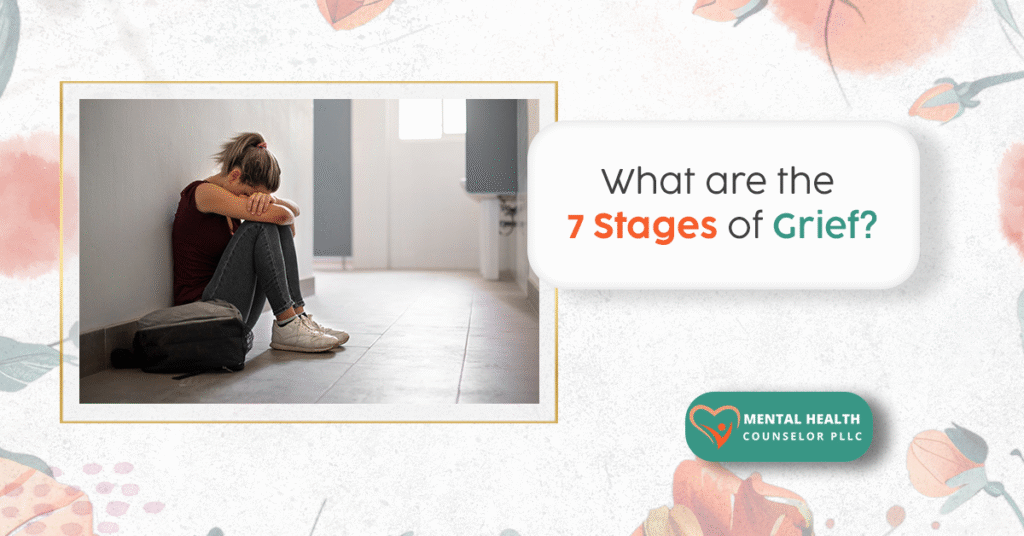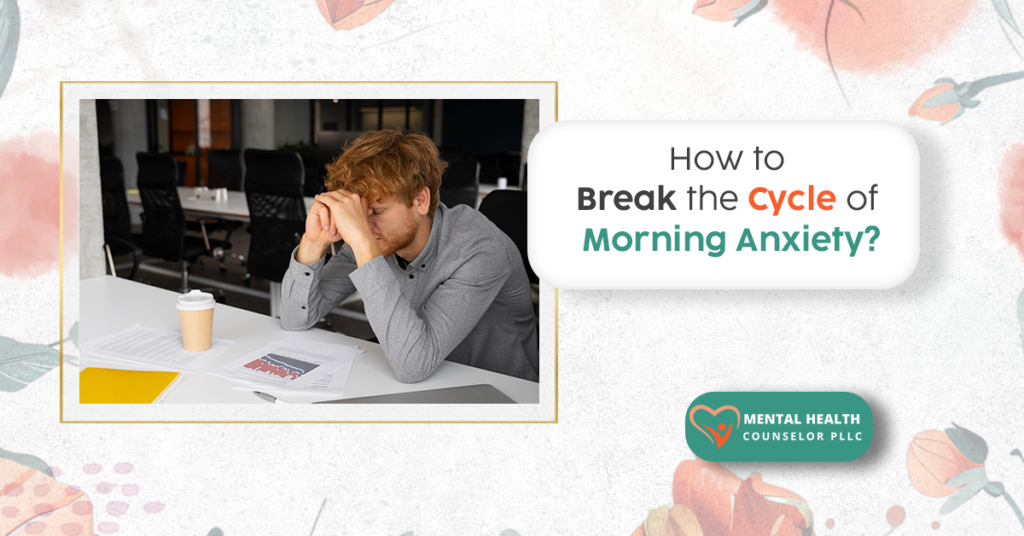When Is Grief the Worst?
Grief is one of the most intimate and profound emotional experiences we face. It touches the very core of who we are—our thoughts, feelings, sense of identity, and direction in life.Grief often becomes most overwhelming in moments of deep loss: the death of a loved one, the end of a significant relationship, miscarriage, or major life transitions. These experiences can disrupt our emotional balance, challenge our sense of meaning, and leave us feeling unanchored.At Mental Health Counselor PLLC, we recognize how destabilizing grief can be. Each person’s experience is unique, which is why we offer thoughtful, individualized guidance tailored to what you’re going through.So, when is grief the most difficult? It often strikes hardest in quiet moments, during anniversaries, or when life reminds us of what—or who—is no longer there. Understanding these patterns can bring clarity and reduce the sense of isolation that often accompanies loss.If you’re navigating the weight of grief, know that compassionate support is available. Contact us to explore ways of moving through it—at your own pace, in your own way. Understanding Grief Grief doesn’t follow a single pattern or emotion. It’s a blend of feelings that can shift from hour to hour or day to day. Some moments may feel manageable, while others can be unexpectedly overwhelming. Rather than a straight path, grief is often described as a journey—one with twists, turns, and no fixed timeline. The Stages of Grief Grief is often described through six commonly recognized stages: It’s important to note that these stages are not experienced in a fixed order—and not everyone will go through all of them. Some may revisit certain stages, while others may move through them quickly or slowly. Grief can show up in many forms, including: At Mental Health Counselor PLLC, we offer space to explore these responses to loss, recognizing that the grieving process is as individual as the person experiencing it. There is no “right” way to grieve—only your way. When Is Grief the Worst? Grief doesn’t follow a predictable path or timeline—but there are moments when its intensity often rises sharply. Certain periods tend to bring a heightened emotional and physical response. One of the most difficult phases is often: In the initial days or weeks following a significant loss, many people experience a profound sense of emotional disorientation. Numbness may set in, accompanied by waves of sadness that feel almost unbearable. This early stage is also marked by physical responses—such as disrupted sleep, reduced appetite, fatigue, and a sense of being disconnected from reality.During this time, the brain begins to process the absence and struggle with the shock of change. Because the loss is so fresh and unfamiliar, emotional responses tend to be most intense. Grief can feel like it’s taking over both mind and body. Anniversaries, holidays, and special occasions often bring an unexpected resurgence of grief. These moments can stir deep emotional responses, even years after the initial loss. The absence of a loved one—or the memory of what once was—can feel especially sharp on days that once held shared meaning. These dates often serve as quiet reminders that the loss remains part of one’s emotional landscape. While time can soften certain edges, it does not erase the connection or the pain entirely. Feelings of sadness, longing, or regret may return with intensity during these moments, and that is a natural part of the grieving process. Unresolved grief can emerge when a person has not had the opportunity—or emotional space—to fully process a loss. This may happen when grief is complicated by feelings such as guilt, anger, or emotional avoidance. In these cases, the grieving process may become stuck, leading to a prolonged or intensified sense of distress.Unresolved grief often resurfaces unexpectedly. A new loss, even one that seems unrelated, can trigger deeper emotional pain, sometimes stronger than before. When grief remains unprocessed, it may linger in the background, influencing mood, behavior, and well-being over time.Recognizing when grief feels unresolved is an important step toward working through it in a way that honors both the loss and the person experiencing it. When a loss occurs unexpectedly—such as through an accident, sudden illness, or traumatic event—the emotional impact can be profound. The shock and disbelief that follow can interrupt the natural flow of grief, making it harder to process what has happened.In cases of highly distressing events, such as crashes or disasters, individuals may experience not only grief but also symptoms of trauma. Feelings of confusion, emotional numbness, or intrusive memories may arise, and the sense of loss can feel both overwhelming and disorienting.This combination of grief and trauma can make emotional recovery more complex. People may feel stuck between disbelief and pain, struggling to find clarity or peace. In such circumstances, the grieving process often requires more time and careful emotional engagement. Sometimes, people hide their feelings. They might think they can’t handle them or fear getting too upset. If someone doesn’t hold their sorrow, it can harm their well-being, mind, and body.A person who does not express their grief clearly may feel lonely, guilty, or upset. Often, the healing process begins only after they express how they feel and accept that their pain is a natural part of things. The Psychology Behind Grief: What’s Happening? Grief impacts both mind and body in profound ways. At its core, it reflects the emotional bonds we form—what attachment theory describes as the deep connections that shape our sense of safety, identity, and meaning. When a significant relationship ends, the mind struggles to make sense of the absence, often reacting with emotional confusion, disorientation, or a deep sense of incompleteness. Many individuals describe grief as: Grief can mirror certain symptoms of depression or anxiety—such as sleep disruption, fatigue, or loss of interest—but it follows its own course. Unlike clinical depression, grief tends to fluctuate; emotions can shift dramatically from one day to the next.However, when intense mourning persists beyond a year and interferes significantly with daily functioning, it may evolve into Prolonged Grief Disorder (PGD).
When Is Grief the Worst? Read More »










